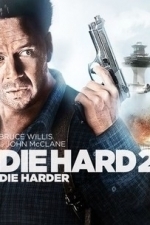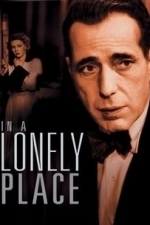Search
Search results
Emma @ The Movies (1786 KP) rated Die Hard 2 (1990) in Movies
Sep 25, 2019
I'm not going to lie, about 10% of the reason I like this one is because of William Sadler doing naked tai chi.
Could you imagine Die Hard 2 filmed these days? There'd be no tasing Dick, what a disappointment.
Of the few things that bother me about this one the film's yippee ki-yay for me could have been better timed. He's got the perfect moment coming up, if he'd have just left it until after he lit the fuel... "Yippee ki-yay, motherf*****!" *two beats* BOOM.
Sadly Die Hard 2 is my least favourite out of the four... like I said, we don't count the fifth one. Not that that's a bad thing, it's still damn good, it's just up against some stiff competition.
In the first one McClane has Powell, in Vengeance he has Zeus and in 4.0 he has Farrell. For some reason in 2 they didn't give him someone to properly develop a relationship with, there are lots of people there for him to interact with, but nothing really lasts very long before he's off to the next one.
Could you imagine Die Hard 2 filmed these days? There'd be no tasing Dick, what a disappointment.
Of the few things that bother me about this one the film's yippee ki-yay for me could have been better timed. He's got the perfect moment coming up, if he'd have just left it until after he lit the fuel... "Yippee ki-yay, motherf*****!" *two beats* BOOM.
Sadly Die Hard 2 is my least favourite out of the four... like I said, we don't count the fifth one. Not that that's a bad thing, it's still damn good, it's just up against some stiff competition.
In the first one McClane has Powell, in Vengeance he has Zeus and in 4.0 he has Farrell. For some reason in 2 they didn't give him someone to properly develop a relationship with, there are lots of people there for him to interact with, but nothing really lasts very long before he's off to the next one.
BankofMarquis (1832 KP) rated Vice (2018) in Movies
Jan 21, 2019
Good movie with 2 GREAT performances
Writer/Director Adam McKay was known for years as the writing partner/director of Will Ferrell, having written and directed such comedy gems as ANCHORMAN, TALLADEGA NIGHTS and STEP BROTHERS and then, in 2015, he stepped out of Ferrell's shadow - and the comedy world - and delivered the multi-Oscar nominated film THE BIG SHORT, a fascinating, terrifying and (at times) funny look at the financial crisis of the mid-2000's.
His follow-up to this film is another fascinating, terrifying and (at times) funny look at a serious subject - the life and career of former Vice President Dick Cheney, an unassuming bureaucrat that wields much power in the George W. Bush White House. I thought THE BIG SHORT worked on every level so was looking forward to this follow-up and this one works on MOST levels.
So..what does work? Let's start with the acting of the top-notch cast. Steve Carrell, Sam Rockwell, Lily Rabe, Justin Kirk and Tyler Perry all are terrific in smaller, supporting roles that depict real people (like Donald Rumsfeld, George W. Bush, Liz Cheney, Scooter LIbbey and Colin Powell, respectively). They all bring the necessary level of gravitas and ironic humor to their parts.
But...make no mistake...this film stars and IS ABOUT Lynne and Dick Cheney (Amy Adams and Christian Bale) and both of these two stars SHINE BRIGHTLY in their portrayal of a a Washington DC power couple who are always calculating the political angle of any issue and how they can benefit from it. I expect both of these two actors to get Oscar nominations.
What also works is the pseduo-documentary style that McKay brings to the screen (similar to THE BIG SHORT), the characters, at times, speak directly to the camera to explain something or (at one time) breaks into a Shakespearean scene to emphasize what's going on.
So...what doesn't work? I'm going to start with the Narrator of this piece, Jesse Plemons. He is a solid actor who can bring a wry sense of humor - or gravitas - to the proceedings. But, to be plain about it, Plemons narrator character (who we come to find out has a VERY big role in Cheney's life) is just not interesting enough to follow or listen to. In THE BIG SHORT, this role was filled by the charm and charisma of Ryan Gosling and, I'm afraid, Plemons just doesn't have that same level of charm and charisma.
Secondly, what didn't work for me was the people/events that were unfolding in front of me. There was NOT ONE character to root for on the screen. Every politician seen upon the screen was just out for themselves and were willing to screw (or stab in the back) anyone that is no longer any use for them. These are not very likable characters and I longed for someone to root for, which made this film fall short of "GREAT" status for me. It is a very good film - strongly acted - but not a GREAT film.
If you haven't seen it, I would recommend VICE to all if, for nothing else, the performances of Adams and Bale, they are mesmerizing, just don't expect to root for anyone.
Letter Grade B+
8 (out of 10) stars and you can take that to the Bank(ofMarquis)
His follow-up to this film is another fascinating, terrifying and (at times) funny look at a serious subject - the life and career of former Vice President Dick Cheney, an unassuming bureaucrat that wields much power in the George W. Bush White House. I thought THE BIG SHORT worked on every level so was looking forward to this follow-up and this one works on MOST levels.
So..what does work? Let's start with the acting of the top-notch cast. Steve Carrell, Sam Rockwell, Lily Rabe, Justin Kirk and Tyler Perry all are terrific in smaller, supporting roles that depict real people (like Donald Rumsfeld, George W. Bush, Liz Cheney, Scooter LIbbey and Colin Powell, respectively). They all bring the necessary level of gravitas and ironic humor to their parts.
But...make no mistake...this film stars and IS ABOUT Lynne and Dick Cheney (Amy Adams and Christian Bale) and both of these two stars SHINE BRIGHTLY in their portrayal of a a Washington DC power couple who are always calculating the political angle of any issue and how they can benefit from it. I expect both of these two actors to get Oscar nominations.
What also works is the pseduo-documentary style that McKay brings to the screen (similar to THE BIG SHORT), the characters, at times, speak directly to the camera to explain something or (at one time) breaks into a Shakespearean scene to emphasize what's going on.
So...what doesn't work? I'm going to start with the Narrator of this piece, Jesse Plemons. He is a solid actor who can bring a wry sense of humor - or gravitas - to the proceedings. But, to be plain about it, Plemons narrator character (who we come to find out has a VERY big role in Cheney's life) is just not interesting enough to follow or listen to. In THE BIG SHORT, this role was filled by the charm and charisma of Ryan Gosling and, I'm afraid, Plemons just doesn't have that same level of charm and charisma.
Secondly, what didn't work for me was the people/events that were unfolding in front of me. There was NOT ONE character to root for on the screen. Every politician seen upon the screen was just out for themselves and were willing to screw (or stab in the back) anyone that is no longer any use for them. These are not very likable characters and I longed for someone to root for, which made this film fall short of "GREAT" status for me. It is a very good film - strongly acted - but not a GREAT film.
If you haven't seen it, I would recommend VICE to all if, for nothing else, the performances of Adams and Bale, they are mesmerizing, just don't expect to root for anyone.
Letter Grade B+
8 (out of 10) stars and you can take that to the Bank(ofMarquis)


